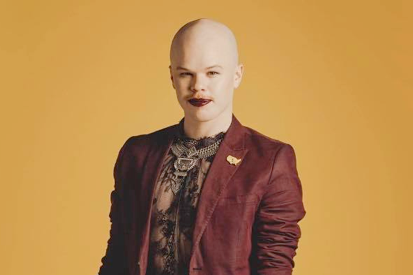
Sam Brinton saves the world
A champion for LGBTQ rights, Brinton got dual masters in nuclear engineering and TPP so he could “save the world from nuclear waste.”
What was the focus of your research? What sort of knowledge and disciplines did it bring together? How are you making an impact?
My husband sometimes describes me as a weird kind of Batman. Why, you might ask? Because by day I work to save lesbian, gay, bisexual, transgender, queer and questioning (LGBTQ) youth from suicide, and by night I work to save the world from nuclear waste related environmental disaster.
How does one come to have two full time jobs in such disparate fields? Why, from TPP of course! With a dual masters in nuclear engineering (Course 22) and TPP, I started my DC career with a series of think tanks like the Breakthrough Institute, Third Way, and the Bipartisan Policy Center, where I concentrated my efforts on explaining the advanced nuclear reactor industry to Congress. Then, my dreams came true when I was offered work with Deep Isolation, the world’s only nuclear waste disposal start-up, and The Trevor Project, the world’s largest suicide prevention and crisis intervention for LGBTQ youth.
My impact is ever changing but with congressional mentions of Deep Isolation on the rise and contracts across the globe, the future of nuclear waste disposal looks bright. And when it comes to The Trevor Project, my highest honor has been the passage of the National Suicide Hotline Designation Act, the first LGBTQ inclusive bill to pass both chambers of Congress unanimously, which will soon bring the national suicide hotline to three simple digits: 988.
Why did you choose to come to TPP?
My time at MIT was spent coming out and coming into my own. While nuclear engineering students told me the only reason I was admitted into the Institute was because of my “diversity” fellowship, TPP students never imagined putting me in that kind of box.
There were many reasons I came to TPP. It was a place where combination was celebrated, where I could learn law, economics, quantum physics, and system dynamics all at the same time. It also got me away from Kansas. I only applied to two graduate school programs (I do NOT recommend doing this) – MIT and UC Berkeley. The reason? They were on the coast, and I was so tired of the constant attacks on my identity.
What did you enjoy about living in Cambridge? What do you like about the MIT community?
Moving to MIT from the wheat fields of Kansas was A LOT. I had just founded the first LGBTQ student resource center in the state and to be honest, Cambridge and the MIT community gave me a place to grow and learn. I wasn’t the only nuclear nerd. I wasn’t the only bisexual. From Provincetown trips and singing with the Boston Gay Men’s Chorus to LONG nights in libraries and founding a Global Zero chapter at MIT (working to pragmatically reduce and eliminate nuclear weapons), it was a FANTASTIC few years that I truly can’t imagine spending any other way.



